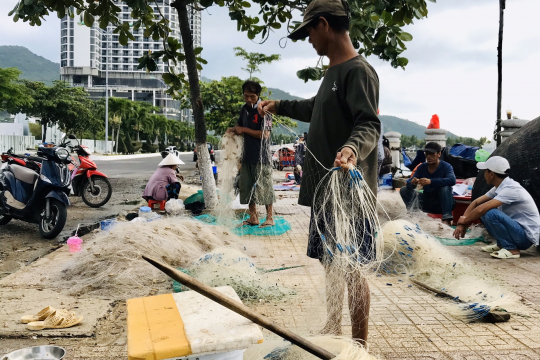This study examines the role of small-scale fisheries in Vietnam in promoting food security and alleviating poverty within fishing households and the potential of fisheries management measures to address these two aspects. The findings reveal that, overall, small-scale fisheries in Vietnam have significantly contributed to the well-being of fishing households, enhancing both income and food security. However, a number of fishing households still face challenges concerning these two dimensions. Households in this group have fewer opportunities for alternative livelihoods and rely primarily on fisheries-related activities. They risk falling into poverty if adequate support for alternative livelihoods is not provided. Therefore, while small-scale fisheries play a significant role in poverty reduction and mitigating hunger, it appears that they may not substantially enhance the overall living standards of fishers, given the issue of over-exploitation and resource degradation. These results imply that future policies for small-scale fisheries should foster synergies among various interventions to conserve fisheries resources, alleviate poverty, and ensure food security.
Abstract
Small-scale fisheries are crucial to support the welfare of coastal communities. Nonetheless in Vietnam prolonged overexploitation and inadequate management have led small-scale fisheries into an uncertain future, leaving fishing households vulnerable to poverty and food insecurity. This study examines the role of small-scale fisheries in Vietnam in promoting food security and alleviating poverty within fishing households. Utilizing latent profile analysis, we categorize fishing households based on the dimensions of poverty and food insecurity and explore the potential of fisheries management measures in eradicating poverty and improving food security. Our findings reveal that, overall, small-scale fisheries in Vietnam have significantly contributed to the well-being of fishing households, enhancing both income and food security. However, we found two distinct groups of fishermen. One group, representing 65 percent of households in our sample, is characterized by higher incomes and greater food security, and is denoted in the study as “protected households”. The second group, comprising 35 percent of our sample, is challenged in both dimensions and is denoted as “vulnerable households”. Protected households are more likely to be located where access limitations are enforced, often accompanied by livelihood enhancement opportunities. These results imply that future policies for small-scale fisheries should foster synergies among various interventions to conserve fisheries resources, alleviate poverty, and ensure food security.
Keywords: Poverty, food security, small-scale fisheries; Vietnam fisheries



